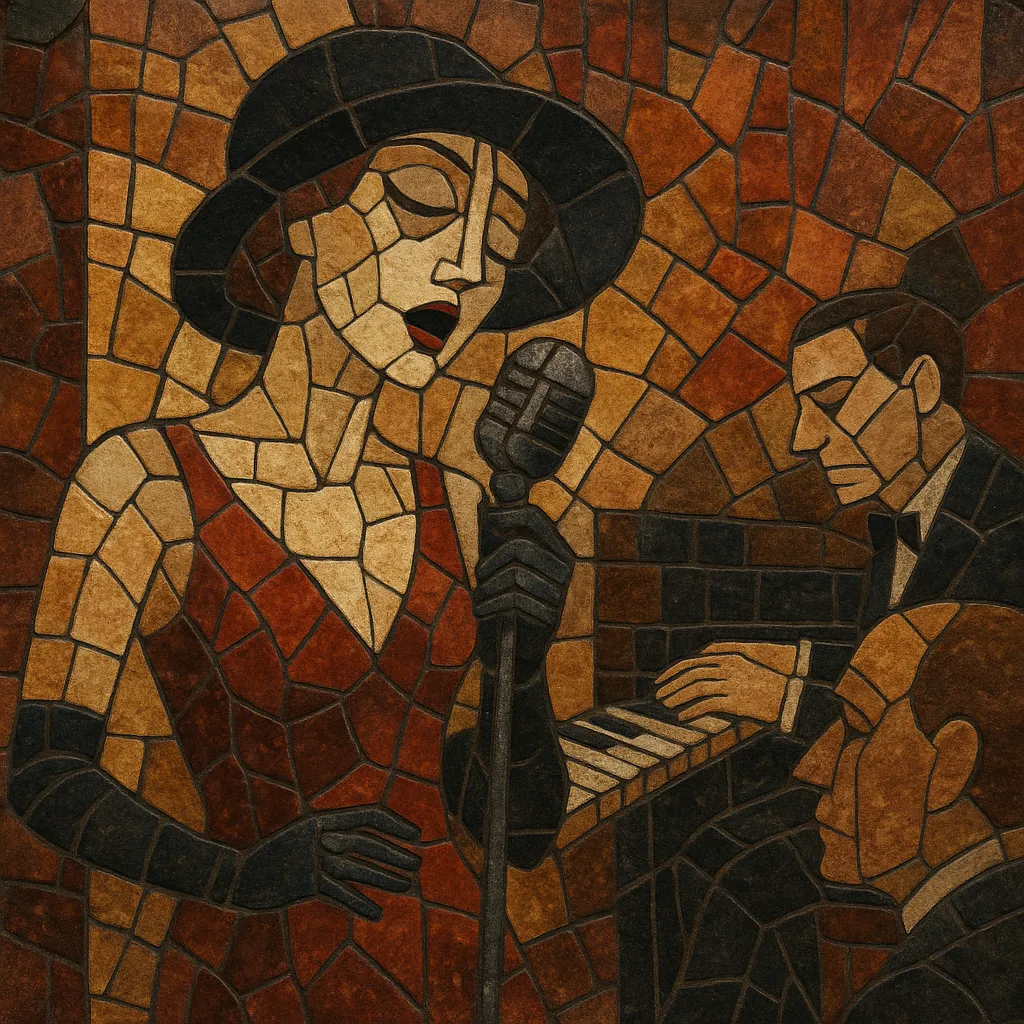Kabarett is the German-language tradition of intimate, satirical stage entertainment that blends song, spoken word, sketches, and sharp political or social commentary. It typically takes place in small venues with close audience contact, privileging witty lyrics, irony, and wordplay over spectacle.
Emerging in Berlin and Munich in the early 20th century and flourishing during the Weimar Republic, Kabarett developed a literary and musical voice that alternates between biting humor and melancholic reflection. Performers often sing strophic chansons accompanied by piano or small ensemble, interweaving monologues, parodies, and topical satire to critique power, hypocrisy, and everyday life.
German Kabarett arose at the turn of the 20th century, inspired by Parisian cabaret and the chanson tradition but adapted to a German-speaking literary and political milieu. Early hubs included Berlin’s Überbrettl (founded 1901 by Ernst von Wolzogen) and Munich’s Die Elf Scharfrichter, where songs, poems, and sketches mingled with pointed social critique.
During the Weimar Republic, Kabarett became a vital forum for satire and dissent. Berlin venues like Schall und Rauch and Wilde Bühne championed writers such as Kurt Tucholsky and composers like Friedrich Hollaender and Mischa Spoliansky. Performers crafted sophisticated chansons and razor-sharp monologues that reflected rapid urbanization, economic volatility, and sexual politics—often oscillating between mordant humor and bittersweet melancholy.
With the Nazi takeover, Kabarett’s critical edge was censored. Many Jewish and oppositional artists were banned, exiled, or worse. Nevertheless, elements of Kabarett survived in exile communities, influencing antifascist performance and political song abroad. The period cemented Kabarett’s identity as a form of resistance.
In West Germany, Austria, and Switzerland, Kabarett re-emerged as a crucial vehicle for Vergangenheitsbewältigung (coming to terms with the past) and contemporary critique. Artists like Dieter Hildebrandt helped transition the form onto radio and television, while Austrian figures such as Georg Kreisler preserved and expanded its musico-literary bite.
Kabarett remains a living tradition in German-speaking countries, now intersecting with stand-up, satirical news shows, and singer-songwriter (Liedermacher) circuits. Its DNA—topical lyrics, economical staging, and textual sophistication—continues to shape political comedy, spoken word, and song-based satire.
Write for intimacy and immediacy. Favor small rooms, direct audience address, and clear diction so that wordplay and satire land effectively. Alternate between humor and poignancy to mirror social contradictions.
Use a piano-centric setup; add accordion, violin, clarinet, or a small rhythm section for color. Keep textures lean so lyrics remain foregrounded. Employ strophic chanson forms with refrains for memorability.
Compose tonal, song-like harmonies with occasional chromatic twists to underline irony. Melodies should be singable and speech-influenced. Rhythms often draw from waltz, tango, foxtrot, or slow marches; moderate tempos help articulate dense text.
Center the piece on topical, literary lyrics—satire, parody, and social critique are paramount. Use internal rhyme, puns, and rhetorical questions. Interleave spoken monologues with sung verses, and shape phrasing around comedic timing and strategic pauses.
Minimal sets and props: a spotlight, a chair, perhaps a placard. Sequence the program to alternate tones—acerbic number, reflective ballad, quick sketch—so the audience experiences contrast while the political through-line remains clear.


